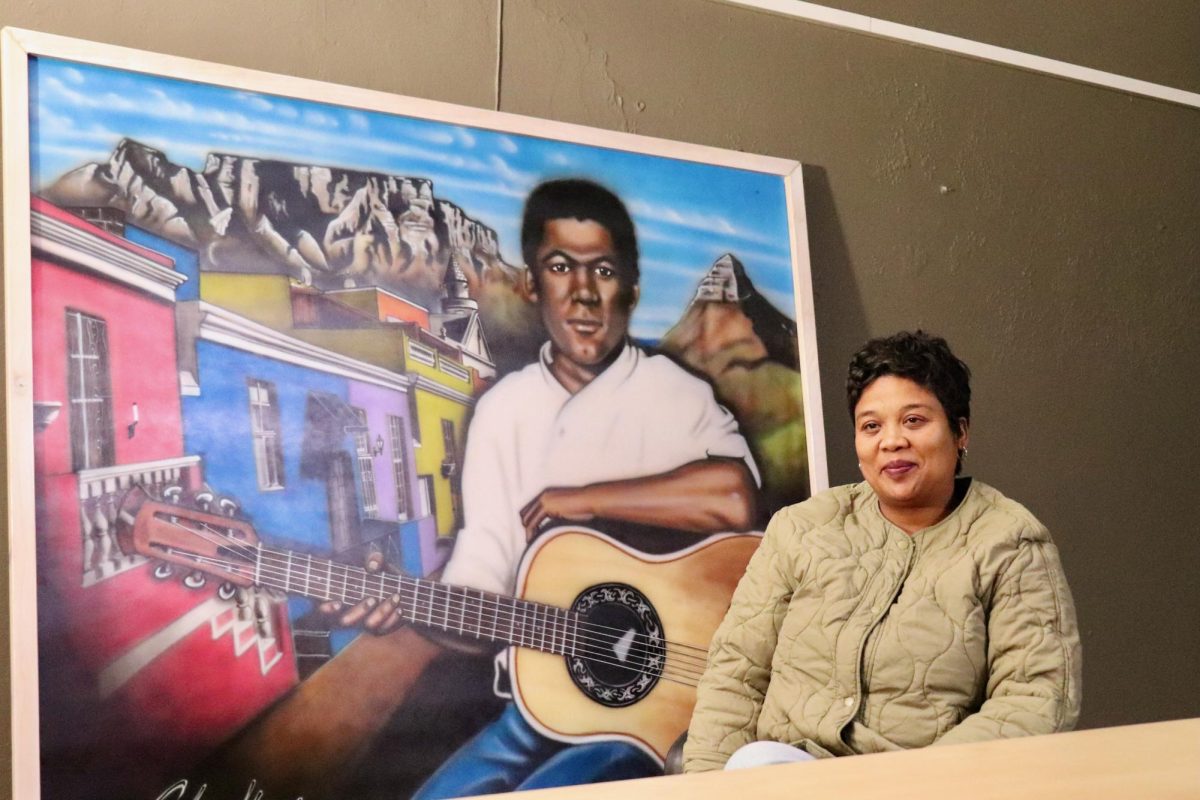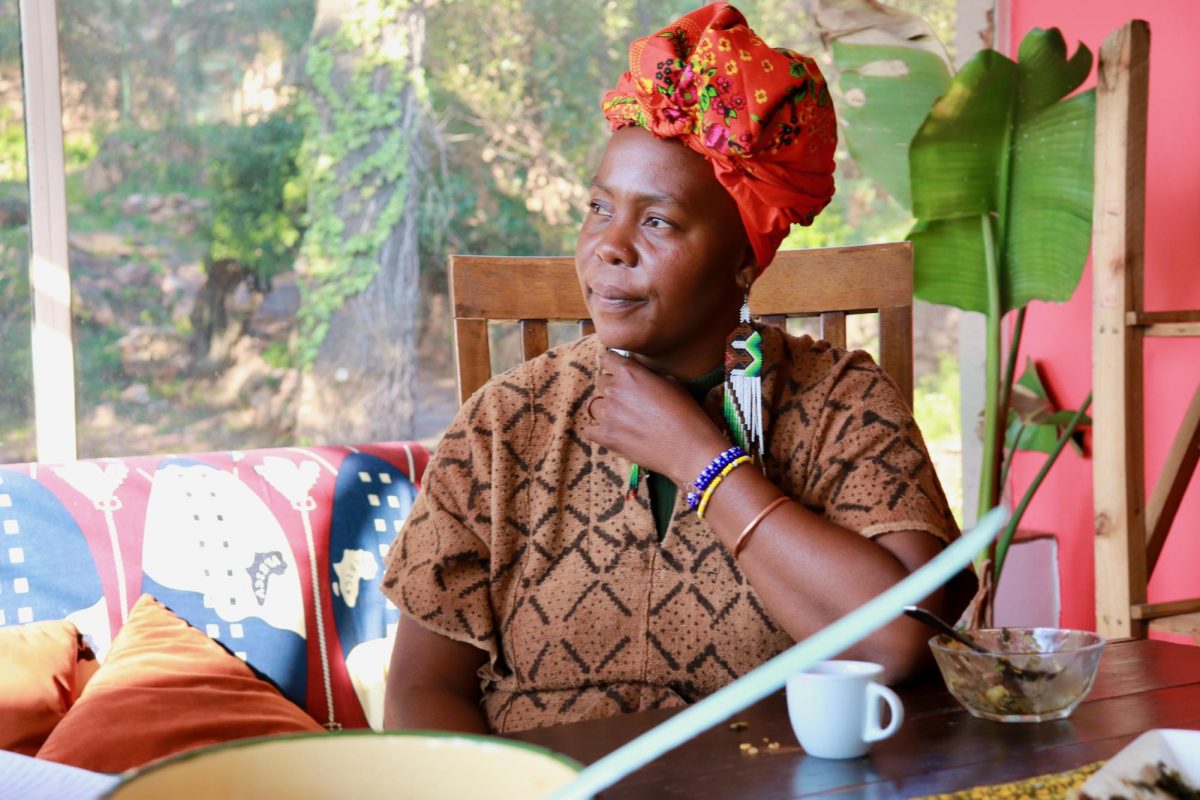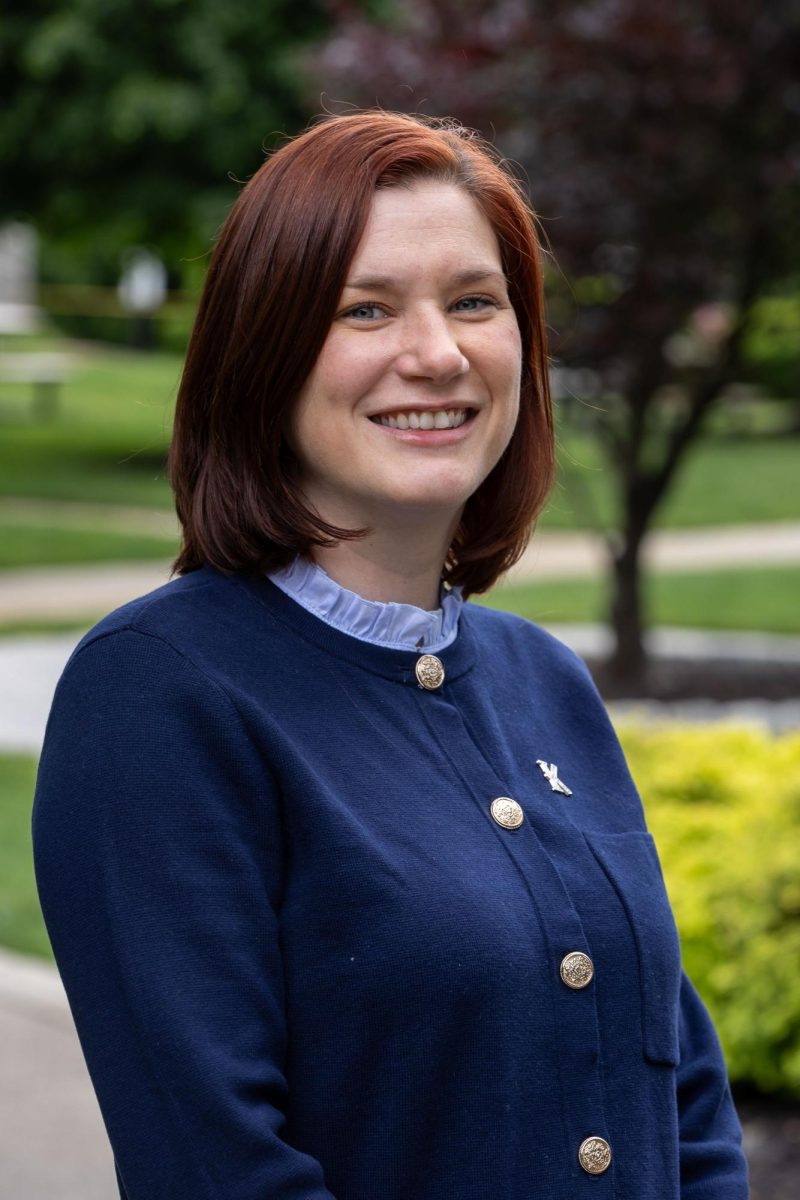Theresa McFalls, the Kinney Center’s newest executive director, is six months into a role that she has, in many ways, been preparing for since 2011.
McFalls, Ed.D. ’25, joined the Kinney Center in 2011 to help build the new ASPIRE program. Over 13 years later, few people know the Kinney Center as well as she does. That knowledge helps to drive some of her goals, one of which is innovative and efficient problem-solving.
“If there’s something that’s always causing a problem, let’s fix it,” McFalls said. “Let’s give the people who have to deal with those problems every day the autonomy, like, ‘This is your process. How do you want it to be? Make a wish list of what would be your ideal process, and then let’s see how we can make that happen.’”
McFalls’ approach to leadership has earned praise from those who work with her, who say she strikes a balance between setting clear expectations and fostering meaningful relationships.
“Theresa is very open, and she’s very straight to it,” said Robert Haftl, assistant director of college support in the ASPIRE program. “… She really cares, she wants to make sure she gets to know people and gets to understand who they are.”
Initially working with children and teens who had emotional challenges, McFalls found herself drawn to autism services while she was in graduate school after working with children on the autism spectrum at a summer camp.
“I wanted to be with the emotional support kids. They put me with the autistic support kids. I just really fell in love with the population at that time,” McFalls said.
What began as a job assignment soon blossomed into a career passion. McFalls graduated from West Chester University with a master’s degree in social work and joined the Kinney Center. She’s been with the Kinney Center ever since, moving from associate director of community outreach in 2011 to director of college professional support in 2019 to interim executive director in 2023.
McFalls’ commitment to the Kinney Center’s mission is evident not only in her relationships with staff but also in her long-term vision for growth.
“Since Theresa stepped into this role, the Kinney Center has been able to grow many strategic partnerships both within and externally to the university,” said Alli MacNamara, assistant director of college autism support. “Theresa leads through modeling, and she models for her staff to consistently provide quality services to our clients and uphold the Kinney Center mission and values.”
One development at the Kinney Center under McFalls’ leadership is the push to expand training opportunities through e-learning platforms. This digital shift will allow the Kinney Center to extend its reach far beyond St. Joe’s campuses, providing essential resources to other universities and companies in need of guidance on autism support.
While there is much to celebrate in terms of growth and progress, McFalls acknowledges that the field of autism services is constantly evolving.
The biggest opportunity and challenge for the Kinney Center, McFalls said, was “continuing to be innovative, being multidisciplinary, keeping up with the research. The autism field is really changing, and best practices for autism are emerging.”
As autism support becomes more diverse, integrating disciplines like counseling, social work, occupational therapy and speech therapy, the Kinney Center is working to incorporate these new approaches into its programs, even if it might be difficult.
“We want to make sure that our programs keep up with the trends and research,” McFalls said.
For both staff and students at the Kinney Center, McFalls’ leadership has brought a renewed sense of purpose and direction. Her ability to focus on the center’s mission while empowering those around her has earned widespread admiration.
“Theresa is really leading Kinney into an exciting new chapter,” MacNamara said.








































